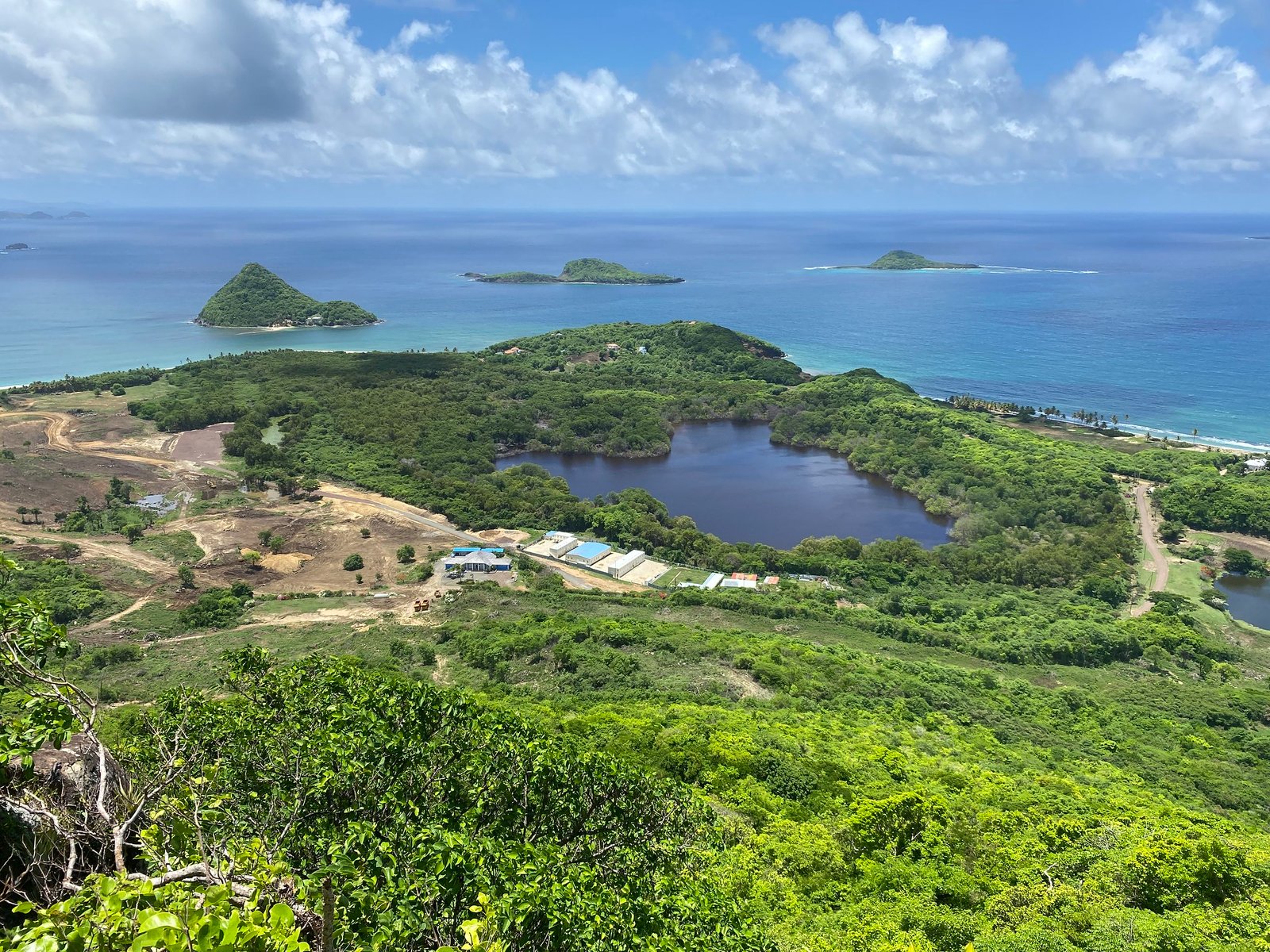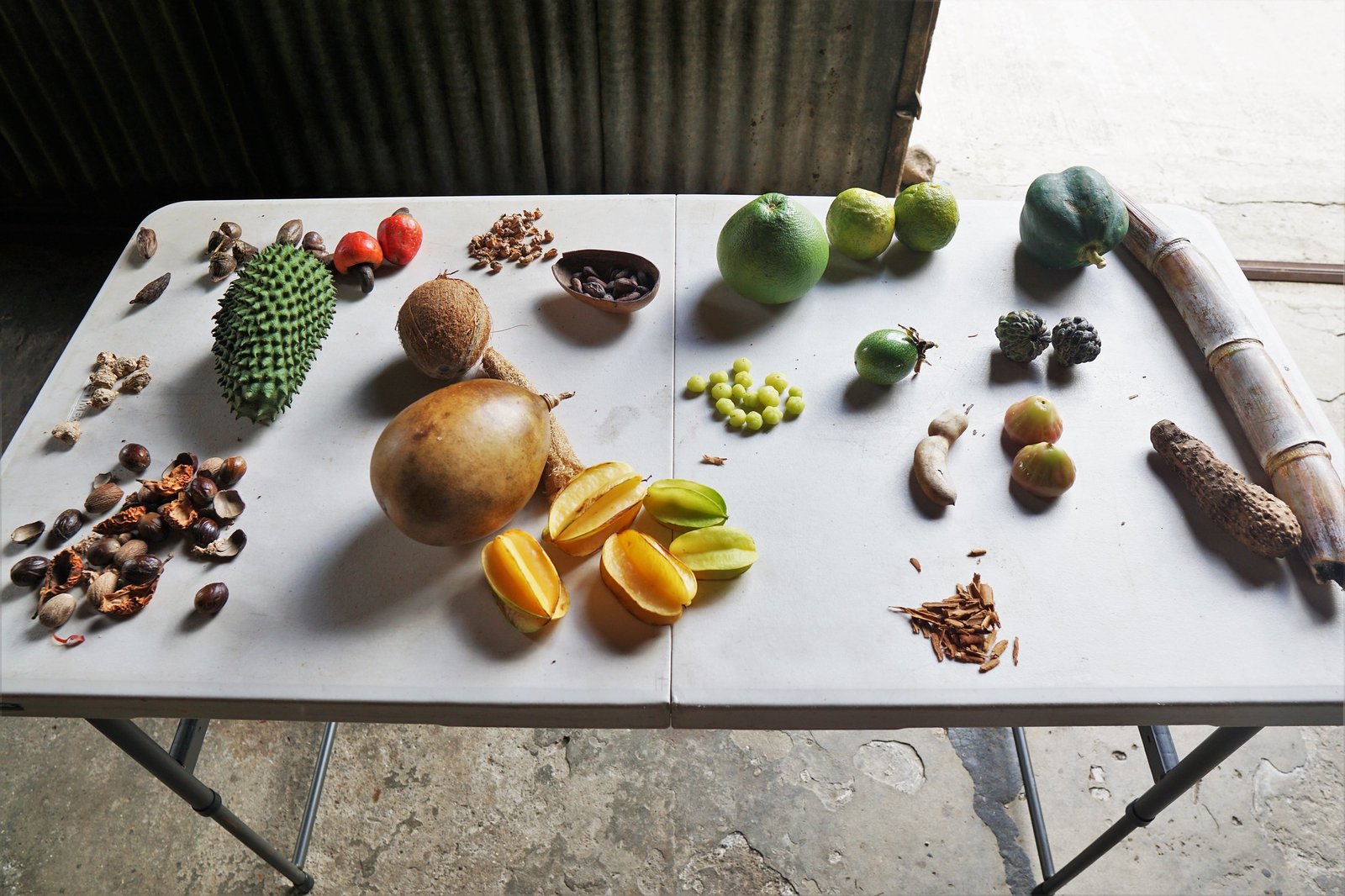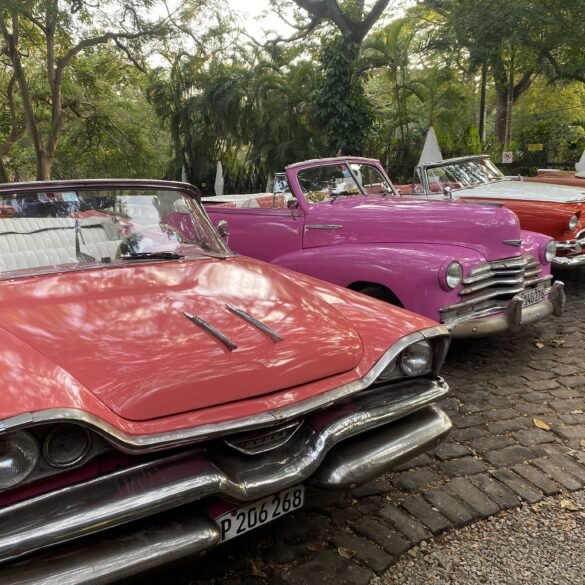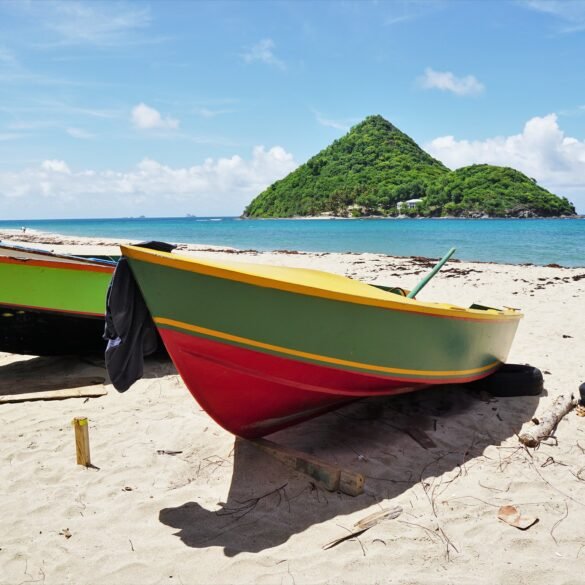“Grenada, the island in the Caribbean, not Spain,” was how I kept answering inquiries about our next trip. The whole thing reminded me a bit of the “Georgia, the country, not the state” fiasco from a few years ago. And still, hardly anyone knew what I was talking about. Somehow, Jamaica, Aruba, and the Dominican Republic are well known in the U.S., but Grenada might as well be somewhere in Europe. This is a shame, of course, because it’s an incredible destination, unique in many ways among all the other islands with a paradise-like vibe and gorgeous beaches.
We weren’t looking for an “off-the-beaten-track” destination or specifically for a beach destination; all we wanted for our first trip of the year was a reasonably priced airfare. And earlier this year, it seemed like this was too big of an ask. And suddenly, there it was, a comparatively cheap flight to Grenada! Sure, there was a matter of a 9-hour layover in Toronto on the way back, but we are no strangers to sleeping in an airport. And so, we booked the tickets, and Victor started working on the itinerary.
The first thing I learned about Grenada was its colonial past. The island was first colonized by France, then by England, and then switched hands a few more times until it finally settled within the British Commonwealth. On the one hand, that means everyone speaks English. On the other hand, everyone drives on the left side… This was important because we rented a car for four days to explore the entire island, the first two of which Victor kept turning on the windshield wipers instead of the turn signal. It was far better than my driving fiasco in the U.K., where I might or might not have sideswiped an Aston Martin. It was a great relief that the rental agency had plenty of automatic cars, so we didn’t have to deal with the stick while driving through the mountains and on narrow coastal roads. Despite the hassle, being able to travel the entire island and not just the touristy areas at our own pace was absolutely essential to exploring Grenada.
It's a relatively small island, only 3% the size of Jamaica, and can easily be navigated in just a few days. But in those few days, we climbed a mountain for incredible views, watched rum being made with 200-year-old equipment, and hiked through a jungle around a volcanic lake. We enjoyed afternoon tea at a century-old estate, tasted freshly sun-dried cocoa beans, then saw them turned into delicious bars of chocolate. And in the gardens, towns, and jungles, we discovered so many plants, flowers, and herbs that it quickly became obvious why Grenada is widely known as the “Spice Island”. We chewed on peppermint picked from an herb garden, ate papaya and mango straight from the trees, and inhaled the sweet, intoxicating scent of nutmeg everywhere. And if the weather got too sweltering or the hike too exhausting, a cool dip in the Caribbean Sea was never more than a short drive away.



The one thing we noticed about Grenada, which separates it from a lot of other beach destinations in the Caribbean, was just how clean everything was. The beaches, the streets, the parking lots, there was barely any litter. The beaches, all of which are public in Grenada, were immaculate. We saw plenty of locals bringing picnics on the beach with foil-covered containers and paper plates, children eating snacks with plastic wrappers, and everyone drinking out of plastic bottles. And yet, none of it ended up in the sand or the water.
We asked about this phenomenon a local guide we met by chance in the north, and she told us that Grenadians are incredibly proud of their island and go to great measures to keep it clean. I asked if this was a recent development, and she said that it has always been like that. I don’t know if this is because Grenada has a stable economy, a well-organized trash collection service, or an environmentally conscious population, but Jamaica, the Dominican Republic, and plenty of other countries can take a page from Grenada’s book.
Another thing about Grenada is how relaxed and welcoming everyone was. Strangers greeted us while passing on the street, every conversation concluded with “Have a great day!”, and no one tried to sell us a single thing (except at a market, where this was expected). This was quite a drastic turnaround from the beaches of Mexico, where a man in a canoe full of touristy trinkets tried to row after me while I frantically tried to swim away from this seafaring sales encounter. Every beach we have ever been on, whether in Thailand, Brazil, or Cambodia had a continuous stream of vendors pounding the sand with offers of food, drink, or trinkets. Grenada was the first place we visited where public beaches were clean, easily accessible, and completely hassle-free.


We have gotten used to the laid-back island attitude in Jamaica, but Grenada was something else. Jamaica may be “jamming”, but Grenada has a concept of “liming”. We had no idea what “liming” was, and I am still not sure I understand it entirely. But any time you are hanging out with friends outside and engaging in a conversation while knocking down a drink or chewing on some BBQ, you are “liming”. As long as you are relaxed and in good company, “liming” is certainly happening. Everywhere we went, people were hanging out outside stores, at roadside BBQ shacks, on boats, enjoying each other’s company.
And that relaxed attitude was prevalent everywhere. The restaurants opened when they opened or didn’t, regardless of what the “opening hours” were posted on the door or on Google Maps. The houses didn’t have numbers, and all directions were accomplished by vivid descriptions such as “go past a mango tree and turn left where a dog is sleeping”. Cars would stop in the middle of a narrow road, blocking traffic, and no one would get upset. The rest of the cars just waited for the driver to start driving again, or maybe for a passenger to come out and direct the traffic around their car, a common sight all around the island. Car horns seemed to be exclusively used to let others know that you will be passing them, rather than in irritation and anger, as it’s common in the U.S.
At one of the forts that we visited around the capital, we drove up a narrow, windy road only to end up in a small gravel lot with a security guard relaxing at the entrance. Unsure if this was a parking lot and where exactly to park, Victor stopped the car in the middle of the clearing, and I got out to talk to the security guard.
“Good afternoon!” I called out, “Where can we park?”
The guard looked up and shrugged his shoulders. “You are parked!”
We loved Grenada for the unspoiled nature, immaculate beaches, friendly locals, and the fact that no matter where you were, you were parked and liming.


